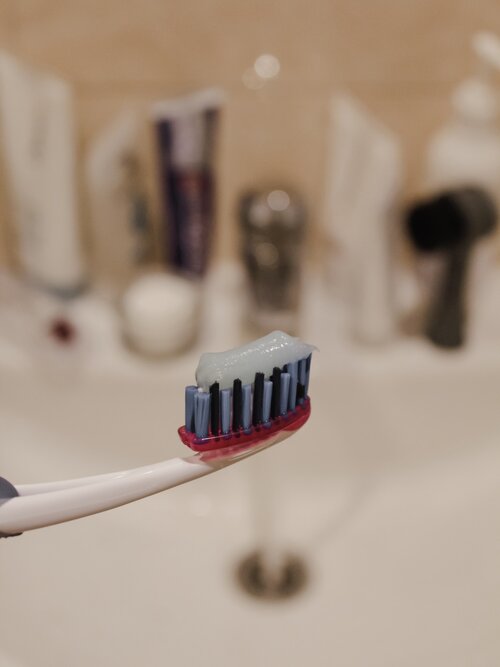The toughest material in our bodies is enamel, which covers and protects a tooth’s dentin. While enamel is stronger than bone, it can still break, chip, or decay due to bacteria. When the bacteria begins to rot away the enamel and dentin, you’ll end up with a cavity.
Cavities are caused by dental plaque. Plaque is a bacteria which grows from the carbohydrates and acids you eat and drink. As the plaque grows and feeds off of the food you eat, it produces acid that breaks down the enamel of your teeth further.
Cavity Causing Conditions
Poor Dental Hygiene
If you don’t brush away the plaque that builds up on your teeth, you’re very likely to develop cavities. Only using mouthwash to freshen your breath won’t remove any plaque either. Brushing regularly and flossing is the only way to remove the cavity causing plaque


Chipped or Broken Teeth
While enamel is extremely strong, dentin, the layer of material underneath the enamel, can decay easily when exposed to bacteria. If you chip a tooth, you have a good chance that the dentin is exposed, which has an increased chance of developing into a cavity.
Pre-existing Conditions
Some conditions like diabetes can cause dry mouth and increased blood sugars. When your blood sugar is elevated to high levels for a long period of time, saliva can be particularly acidic. While regular brushing, flossing, and using mouthwash can improve your chances of not developing any cavities, a dry mouth with acidic saliva creates the perfect environment to develop cavities.
Genetics
The strength of our tooth enamel is decided by our DNA. Weaker enamel is far more susceptible to cavity-causing bacterias, thus you’re much more vulnerable to developing cavities. If you’re already more susceptible to developing cavities, taking care of your dental hygiene should be a priority.
Cavity Prevention
Improving Dental Hygiene
Cavities can develop along the gum line, the side of the tooth, in-between teeth, and on the chewing surface. Keeping your teeth and gums clean with regular flossing and brushing regularly with a fluoride-toothpaste is the best way to prevent these cavities from developing.


Fluoride Toothpaste
While fluoride doesn’t strengthen your teeth directly, it actually makes your saliva a much better agent in clearing the bacteria. Your saliva is already fueled with cavity preventing and tooth strengthening minerals like phosphate and calcium. When fluoride is introduced into your diet through water or introduced into your mouth through toothpaste, it combines with the calcium and phosphate to create fluorapatite, a serious superhero in preventing cavities and strengthening teeth.
Diet
Carbohydrates like gummies, starches, and more can get stuck between the grooves of your teeth and can begin the process to decay your enamel. It’s best if you can brush after meals, but make sure you at least brush out the carbohydrates before you go to bed. Think about it, your dinner will stay on your teeth all night if you don’t.
Other than being sure to scrub out the carbohydrates you eat, highly acidic and sugary foods will decay your teeth quickly. Sodas and acidic drinks specifically are common culprits for cavities found along the gum line.





